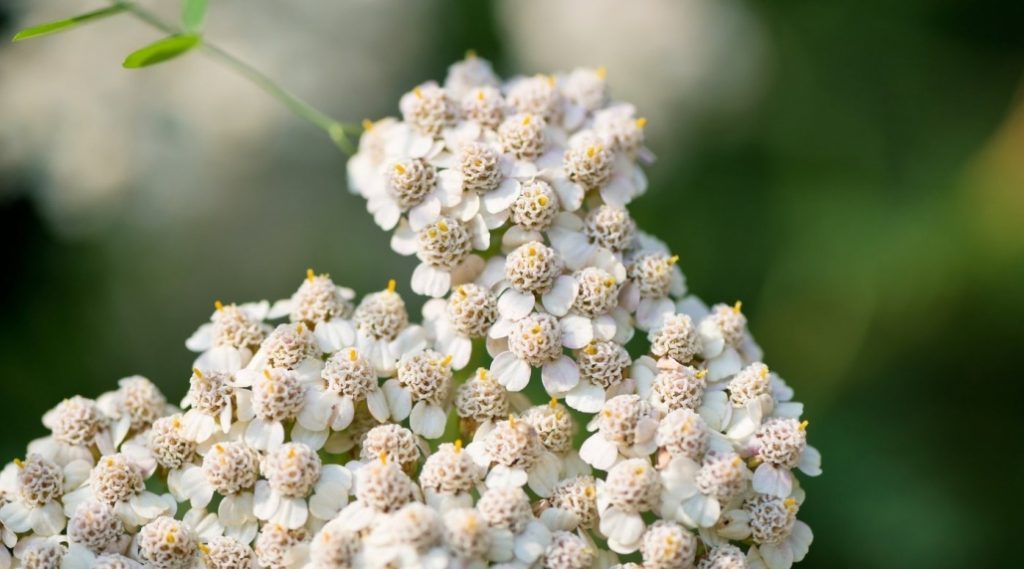
“Yarrow is an aromatic perennial plant from the aster or Asteraceae (Compositae) family, a close relative or chamomile and chrysanthemums.”
The medicinal benefits of yarrow herb have been known for a long time. Native American tribes like the Cherokee, Iroquois, Gosiute and Mohegan used it to as a digestive aid, while the Micmac of New Brunswick, Nova Scotia and Maine used the stalk to alleviate colds and “break” fevers.
Yarrow stalks can also be pounded and made into pulp that’s applied to swollen body parts, bruises and sprains. But in fact, all parts of the plant have medicinal applications, and the herb can be taken internally or used externally. Here are some of the many medicinal uses for yarrow:
Helps fights bacteria and viruses. Drinking a tea made from yarrow, elderflower, linden, boneset, peppermint and ginger can promote sweating and help eradicate flu-causing viruses from your body. Promotes digestion and detoxification. Yarrow’s bitter components and fatty acids encourage proper bile secretion from the gallbladder, which can then improve digestion and keep gallstones from forming. Helps relieves cramps and menstrual pain. Yarrow can also help regulate menstrual periods, particularly controlling heavy flow. May be effective against skin conditions, such as eczema. Not only can it help stop wounds from bleeding, but it can be used as first aid for ulcers. Helps stop nosebleeds. Applying dried or powdered yarrow leaves inside nostrils may help stop the bleeding. Relieves pain from arthritis and rheumatism. It has anti-inflammatory properties that may alleviate pain brought on by these conditions. Helps relieve hemorrhoids. Drinking yarrow tea or tincture or placing a yarrow poultice or compress over the affected area may soothe this health problem.
Click to read the original article by Dr. Mercola
Sources:
“Yarrow: The Herb That Heals Wounds, and So Much More” by Dr. Mercola








